Lee Nutbean has always been concerned by how sustainable we are as a city, a society and a planet.
At his core, he believes that we are consuming too much. We’re taking too much from our environment but not giving enough back.
The Smart Citizens Programme helps people in Plymouth understand that balance. It helps people measure our impact on the world around us - such as air quality, noise pollution, humidity levels and CO2 levels.
For Lee, being part of the programme based in Fab Lab Plymouth at Plymouth College of Art has been life-changing.
He became one of the first to use the Smart Citizen Kit, which gives participants the power to measure the world around them and use the data to better understand and seek solutions to environmental issues.
“We’re in a period of excessive consumption,” he explains. “We’re consuming more than what we're replenishing.
“The Smart Citizen Programme, the Smart Citizen Kit, has allowed people to do participatory sensing - taking responsibility for collecting data in your own environment. And that can be shared on a cloud system for other people to use.”
The Smart Citizen Kits were first developed as an open-source project by Fab Lab Barcelona, a digital fabrication ‘laboratory’ much like Fab Lab Plymouth - part of a network of more than 1,000 Fab Labs worldwide. They are filled with cutting-edge 2D and 3D design software and machinery that fuels innovative digital design.
The data gathered by local citizens around the world is shared with the global Smart Citizen network, helping us better understand how our world is changing.
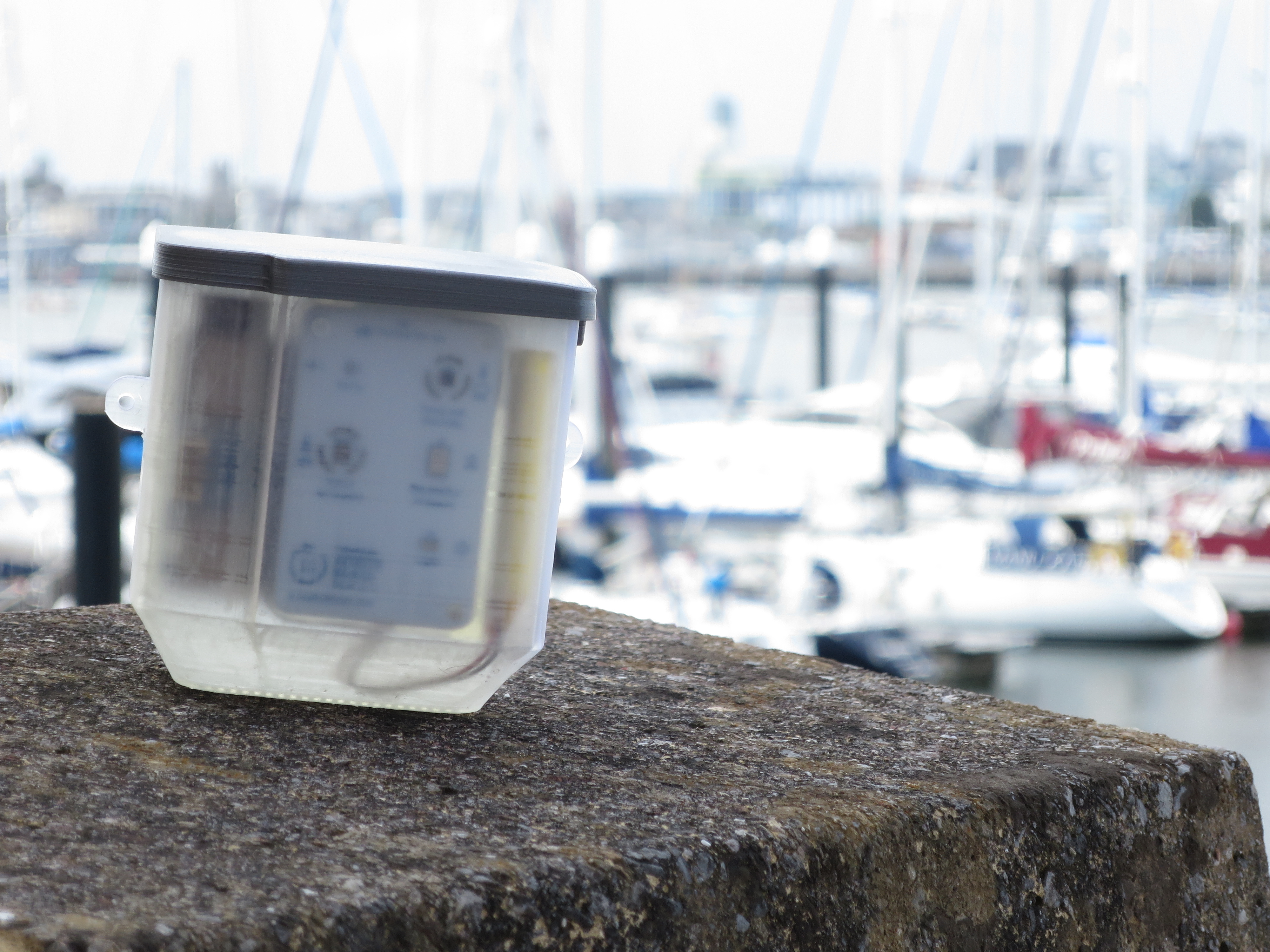
Smart Citizen Kit sensor created by Gareth Evans (Photo credit - Gareth Evans)
Lee, a local electronics expert from Plymouth, has embraced the kit, leading six weeks of training at Fab Lab Plymouth and developing an online platform that represents the environment in Plymouth (such as sky, sun, clouds, rain, hills) using data from the sensors installed around the city by local people who took part in the training.
The result is breathtaking, and was displayed as an immersive experience at the Immersive Dome during the Full Dome festival at The Market Hall in Devonport in October 2021.
He said: “I looked at the kit and thought it was amazing. It's just user-friendly, there’s no programming involved. It was a real breath of fresh air to see something that the average citizen can use.
“If you look at the weather report for Plymouth on BBC News, at the bottom, it'll tell you the GPS of where a sensor kit is. And it's Jennycliff. So we've got one kit, that's at Jennycliff. And that one piece of kit is now giving us the air quality and weather conditions for the whole of Plymouth.
“You're humanising, socialising and visualising their data at a more participative level.”
The Smart Citizens activity has been made possible by the iMayflower project in Plymouth - which aims to build Plymouth's Creative Industries and nurture creative people power across the city.
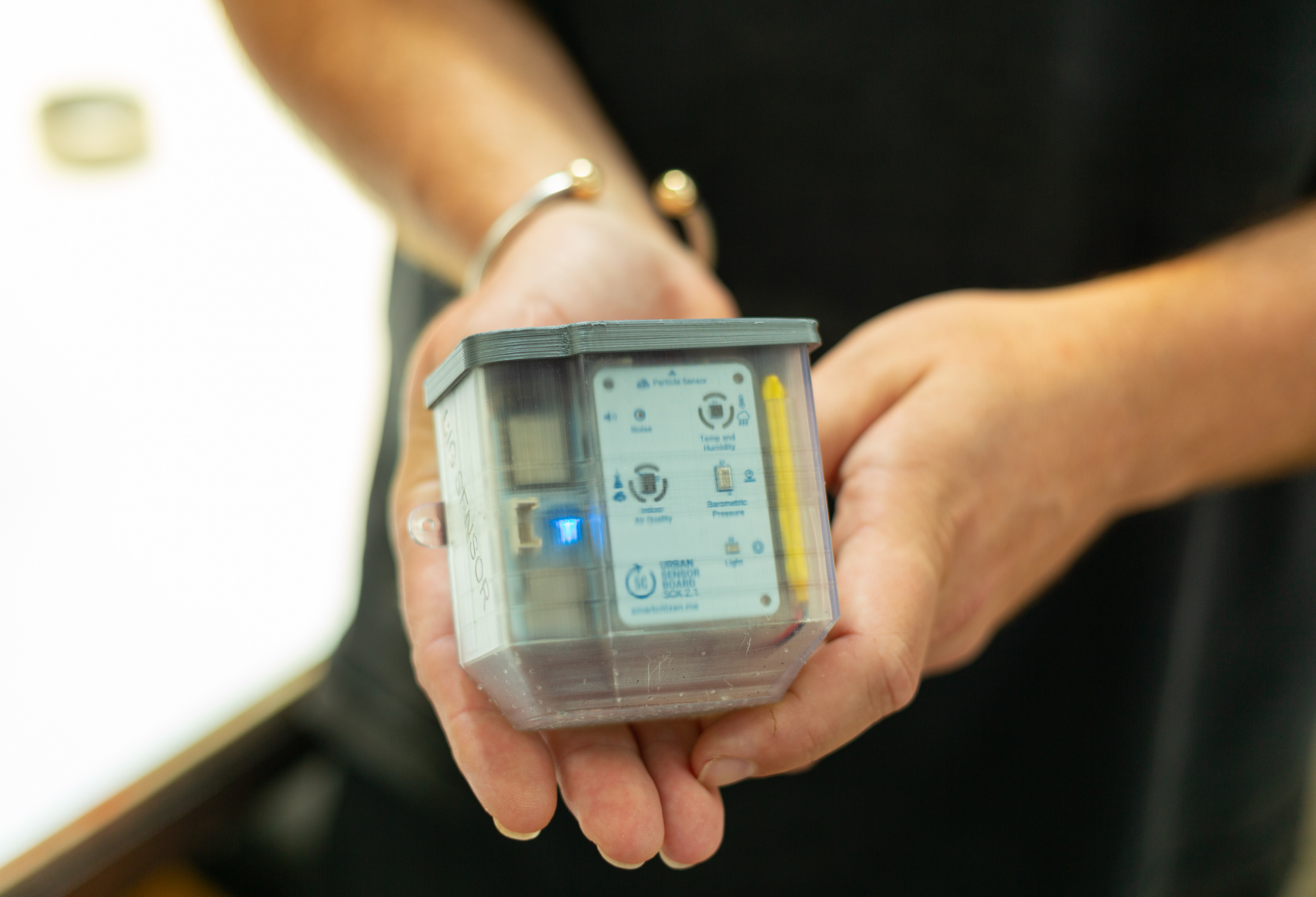
Image credit: Ray Goodwin
Gareth Evans is one of the city’s new creatives and a local Smart Citizen who took part in the programme.
“I thought it was really interesting to be involved in a course that would allow us to install multiple weather monitoring kits and environment monitoring kits around a city.
“This data can then be used to look at what's going on in different parts of the city and possibly influence what's going on with policy making in the city.
“Following on from the Smart Citizens training course, I was able to join a subsequent course at the Fab Lab. This allowed me to develop the case for the kit that we were supplied during the first course and design and build my own.
“It taught me skills with 3D design and 3D printing and taking a design all the way through from concept to the final constructed item - and then mounting the kit on the wall at home, knowing it's in my own case.”

(Left) Local participant Gary Hannaford and his Smart Citizen Kit (Photo credit - Ray Goodwin)
(Right) Gary Hannaford demonstrates how data from his sensor is shared on the international Smart Citizen online platform (Photo credit - Ray Goodwin)
Local maker, Gary Hannaford, is a keen supporter of the Smart Citizens Programme. He created his own sensor in the six-week Smart Citizen Fab City Kit course.
He said: “I followed my father into toolmaking but left the trade due to medical problems. It is a trade I miss deeply and probably what drives me towards being a maker. The Smart Citizens Programme has been a godsend for me. It has fueled my desire to make and given me the tools to do so.
“The Smart Citizen Kit training has been great; I am inspired to delve into this world a little deeper now I understand it better.
“I loved assembling the environmental sensor and enjoyed being involved with Lee’s artwork that uses its data. This boosted my Arduino knowledge, which before the Smart Citizens Programme was limited to making a GPS Speedo to someone else’s design.
“Having a Smart Citizen sensor at my home that publishes data for others to use is brilliant. I check the outputs frequently to monitor what’s happening around me and I’m even considering expanding the station and adding a weather-monitoring system to run alongside the environmental monitor.”
The Smart Citizens Programme’s six-week training not only provided an opportunity to develop electronics and coding skills but supported participants to understand how these skills could be combined with digital fabrication to create smart objects with real-world impacts, such as environmental monitoring.
Through the Smart Citizens’ training Noa Bailey, aged 12, took his first steps into the world of electronics and coding. Noa said “I really enjoyed the course and learnt so much, including coding and processing script, electronics and 3D printing.
“It was amazing to produce something that can monitor the environment around it and create a digital landscape that shows this. I can’t wait to do the next Smart Citizens course and develop my skills in coding and electronics.”
This activity is part of the iMayflower project and has been supported by The Department for Digital, Culture, Media and Sport, who fund the Cultural Development Fund, which is administered by Arts Council England. iMayflower is led by Plymouth City Council and delivered in partnership with Creative England, Crowdfunder, Destination Plymouth, Plymouth College of Art, the Real Ideas Organisation and University of Plymouth.
This May the award-winning IGNITE Festival of Creativity launches their free Business Programme, open to students and graduates from Plymouth College of Art and University of Plymouth. This hands-on programme will support participants to develop key enterprise skills and gain the confidence to grow their creative businesses after graduation.
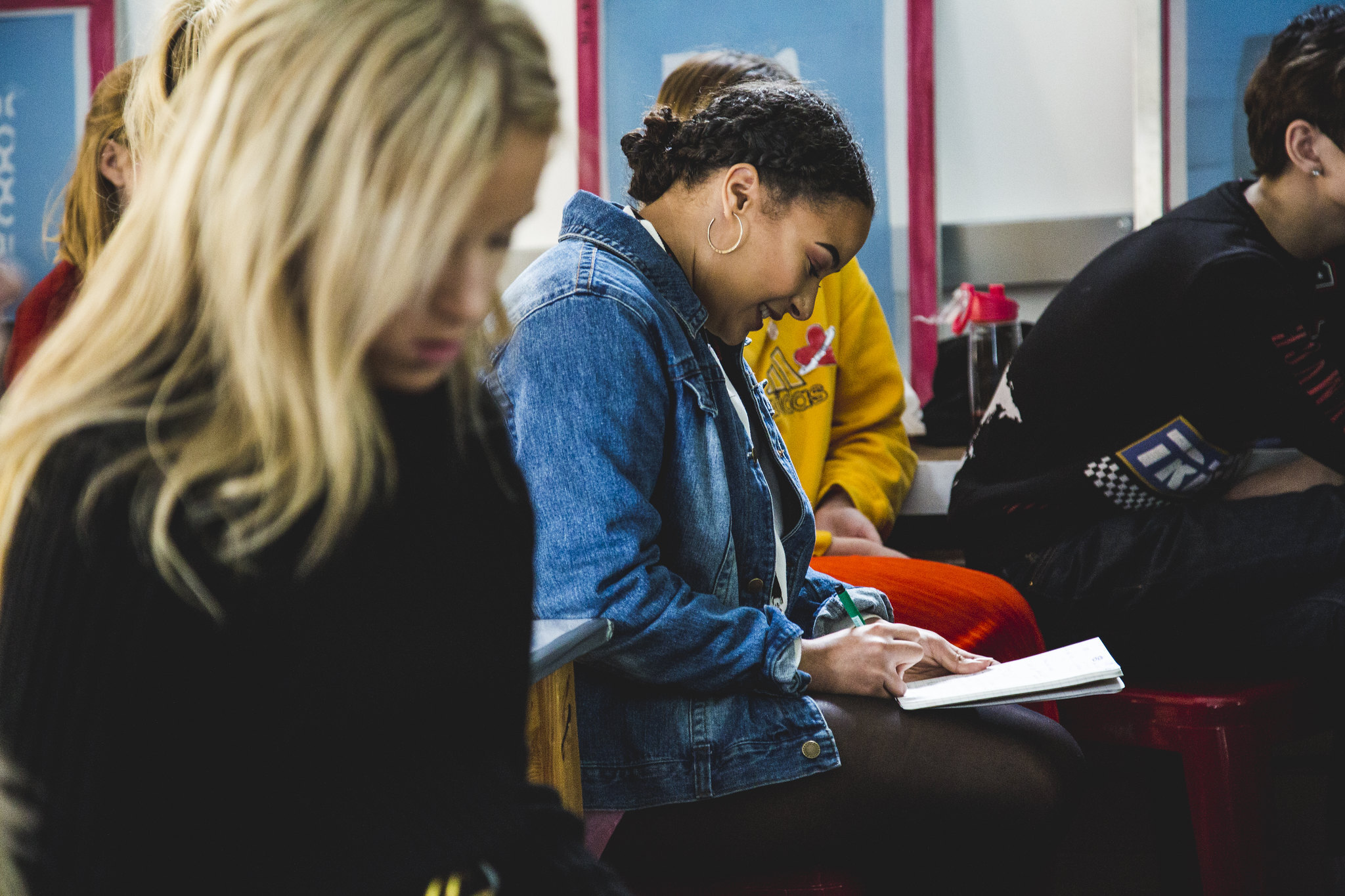
Plymouth students are set to kickstart their businesses at the IGNITE Business Programme. Image Credit: Plymouth College of Art
Eight evening workshops will be delivered by Mark Cotton, an independent business development consultant, founder of Mark Cotton Consultancy, and Non-executive Director and Trustee of KARST, Plymouth’s largest independent contemporary arts space. Including business planning, digital marketing, customer insight, and pitching, workshops will equip participants with the practical skills to pursue their business ambitions and prepare their products or ideas for market. Students and graduates with existing business will also benefit from best practice in how to grow or diversify their business, as well as mentoring opportunities.
Running from 23 May to 1 June 2022, places must be booked online in advance on Eventbrite, where details are also available for how students from other Plymouth-based educational institutions can apply to join.
Now in its fourth year, the IGNITE Festival of Creativity celebrates the work of hundreds of creative graduates from over 30 of Plymouth College of Art and University of Plymouth’s degree programmes across a series of exhibitions and events across multiple city-wide venues, including galleries, studios and event spaces.
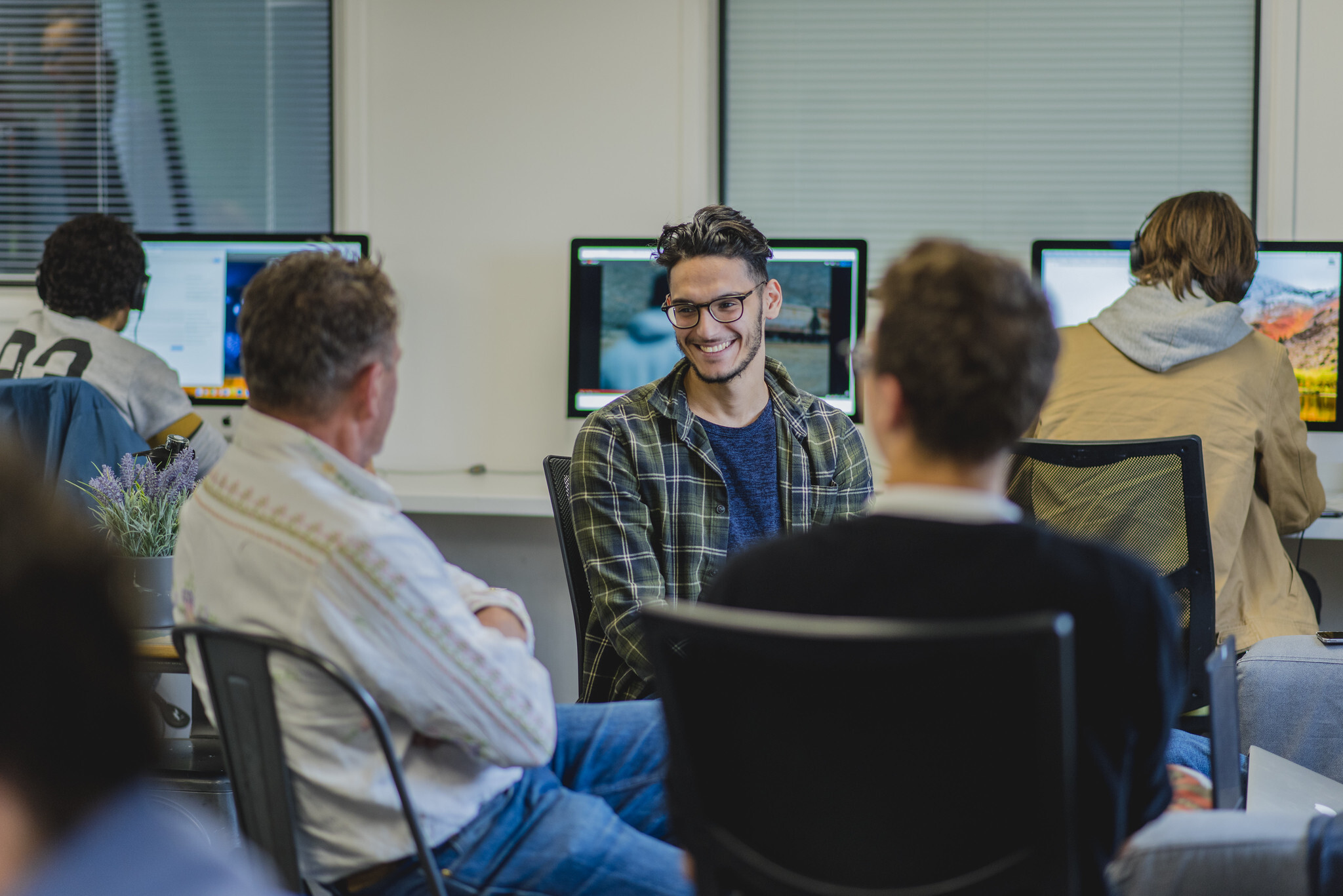
Students can benefit from mentoring opportunities at the IGNITE Business Programme. Image Credit: Plymouth College of Art
Peter Barker, Head of Plymouth College of Art’s School of Design + Communication, said: “The IGNITE Festival, which has been running since 2019, has been a boost to graduate profile building and employability. Plymouth College of Art students have benefitted from the Ignite Futures talent promotion website, from exhibition and promotional opportunities around the city of Plymouth and from participation in business facing seminars and training sessions."
IGNITE is supported by Plymouth City Council as part of the iMayflower project, and by The Department for Digital, Culture, Media and Sport, who fund the Cultural Development Fund (administered by Arts Council England).
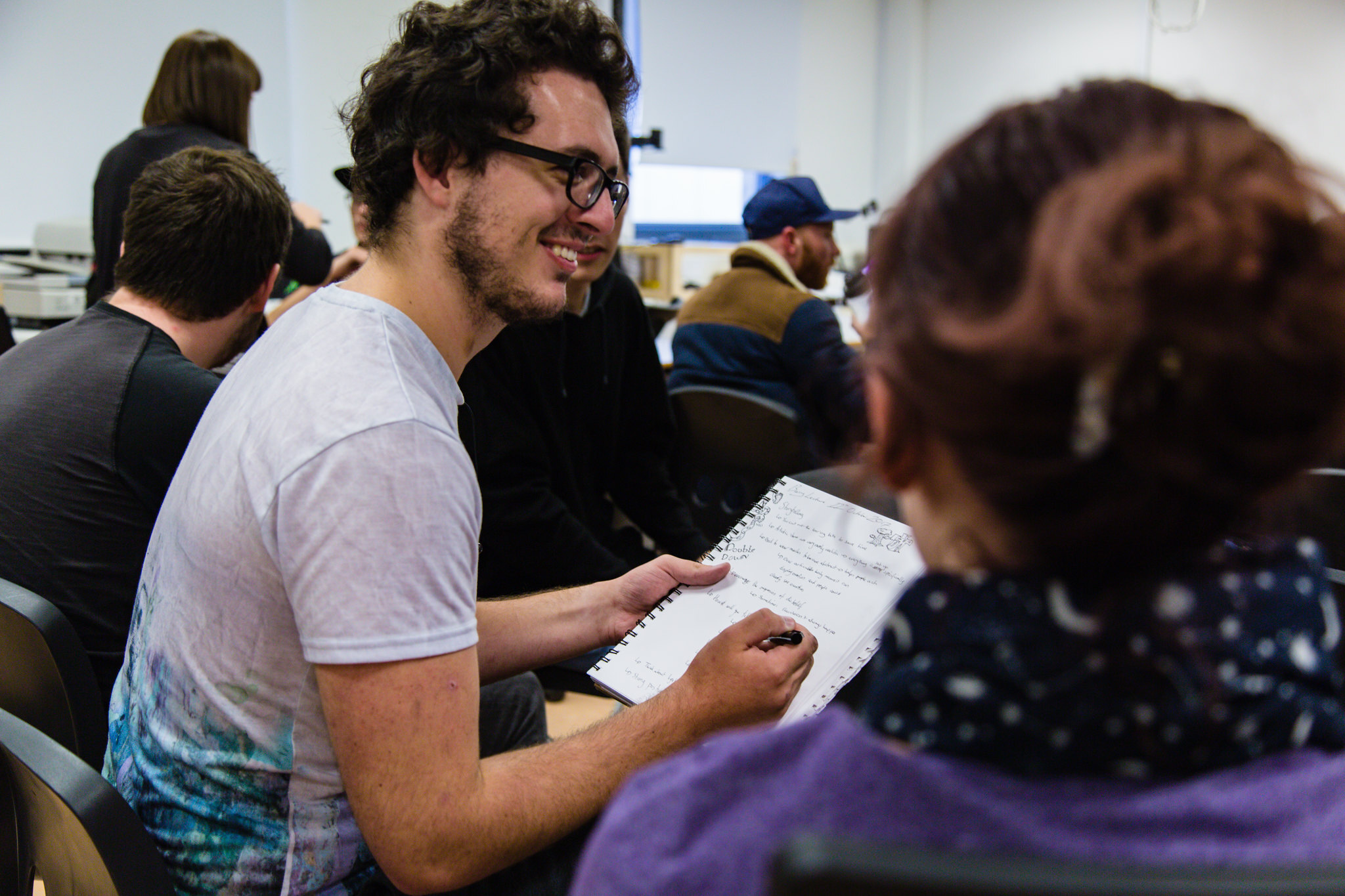
We have always told stories. Whether fiction or fact, they are how we tell our past, present and what we believe to be our future.
But we have never told stories quite like how they are experienced inside Plymouth’s Immersive Dome at The Market Hall in Devonport.
This awe-inspiring 15m 360-degree space places you inside a story. You don’t simply watch or read. You become part of the experience.
It’s a remarkable way to consume the stories of our past and present. But for what our future might hold, the immersive nature of the Dome gives the viewer a new understanding of what our world might become.
This is exactly how South West artist and filmmaker Michaela French has used immersive storytelling in her recent work, Climate Crimes.
Her large-scale immersive fulldome video installation explores the complex relationship between global air pollution, climate change and human migration.
It tells the story of our present and future in a way like no other. It communicates the climate crisis in shocking new ways. And it is only possible to create this kind of urgent experience in a place like the Immersive Dome in Plymouth.
“For me to be standing in this space is a dream come true for me,” says Michaela, speaking inside the Dome at the recent Fulldome Festival.
“To have this here on our doorstep and to have access and open availability and discussions with the team from Real Ideas about how this space might get used is just wonderful. It’s really an amazing landmark.”
Climate Crimes investigates how anthropogenic aerosols and other atmospheric particles originating in the wealthy nations of the global north – Europe, USA, China, and others - impact global climate systems and contribute to the desertification and migration in the Sahel region of north Africa.
The spatial video content is designed to immerse the viewer in this cyclic story of cause and effect. The imagery shifts from microscopic to universal scales, incorporating the physical dome structure in the narrative movement across complex data sets, global perspectives and human stories.
It is told in a way that would only be possible with immersive technology.
Michaela said: “We are so absolutely utterly inundated with science visualisations and climate visualisations and data visualisations in every news feed or every kind of screen-based media.
“And it’s completely abstract and it’s remote and you feel like it’s just more stuff that you should deal with, but you don’t have time. So you just dismiss it.
“And I think in choosing to make Climate Crimes in the Dome, it puts people at the centre of the story and presents the material in a way that people almost had to engage with it.”
The difference of how the Immersive Dome tells a story compared to traditional film (including the 3D version) is hard to pinpoint, but in the experience it’s all-consuming.
“Imagine that you’re in it, not watching,” says Michaela. “I think for me, that’s the difference between presenting content in a normal cinematic or screen-based environment or in the Dome.
“So in the Dome, the body is central to the story, the person in the body, the mind in the body, the consciousness in the body has to engage with the content that’s around.
“It’s a lived experience. It’s not an abstract idea that you can look at remotely. The relationship between the content and the audience changes a lot in a Dome.
“In the Plymouth Dome at the Market Hall, this space is amazingly accessible for people with disabilities. A group in wheelchairs apparently came to Dome recently and reported they were inadvertently moving their joysticks and that the wheelchairs were choreographing with them with the movement of the image on the Dome.
“For me, there’s a fantastic power in that because it’s a direct link. The body’s engaging subconsciously with this space around it in the same way that we do in the world. So, I guess as a filmmaker, it’s understanding there’s that potential there and that in telling the stories, using that potential to kind of make people think or feel differently about how that.”
Michaela is under no illusions of the power that the facility in the heart of Plymouth could wield in the future.
“What kind of stories we can tell and the access we have to the Dome means we can start to kind of play with what kind of questions we want to ask.” she says.
“So, whether that’s from the community, talking about issues at ground level, or whether it’s opportunities to bring a bigger kind of research and other kinds of real-world storytelling into this space, or whether it’s much more exploratory and artistic experience-based events that take place.
“It’s basically an open canvas and we can do whatever we find here. It’s fantastic. I’m excited.”
This activity is part of the iMayflower project and has been supported by The Department for Digital, Culture, Media and Sport, who fund the Cultural Development Fund, which is administered by Arts Council England. iMayflower is led by Plymouth City Council and delivered in partnership with Creative England, Crowdfunder, Destination Plymouth, Plymouth College of Art, the Real Ideas Organisation and University of Plymouth.